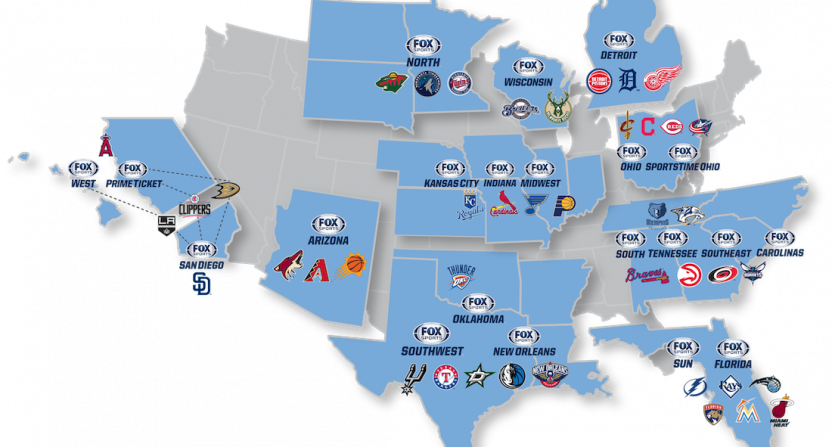For the last four months, the idea of sports networks giving rebates for unplayed games has been talked about quite frequently, especially when it comes to the expensive RSNs that have had no live content with the NBA, NHL, and MLS all shutting down, while the 2020 MLB season never even began.
But as we approach the restart of MLB, NBA, and NHL, with games airing locally on those RSNs, the issue of rebates can be talked about more firmly (especially with MLB’s announced 60 game season, a more than 50% reduction on the standard 162 game schedule). In fact, one analyst says that Sinclair’s rebates could exceed the refunds it receives from the teams whose games are broadcast on their RSNs.
Wells Fargo’s Steve Cahall thinks that the difference between the rebates and the refunds will be $130 million, and most of the rights fee refunds will be coming from MLB teams, per Broadcasting & Cable.
Cahall figures that Diamond pays about $1.9 billion in sports rights, 62% of those going to baseball teams. Diamond will get no money back from the NHL teams, minimal money from the NBA teams and a good chunk from baseball teams, which are playing just 60 games in this shortened season, fewer than the 142 games they promised to MVPDs.
In total, Cahall estimates Sinclair and Diamond will get back $693 million of the $1.9 billion in sports rights.
According to Cahall, only the largest distributors get rebates from Diamond’s networks, which will deliver about 64% of the games they contracted for, resulting in an $823 million rebate to the MVPDs.
That leaves Sinclair and Diamond out $130 million.
The $693 million refund from teams is roughly 36% of what Sinclair reportedly pays in rights fees. If we crack the math down a bit more (ugh, math, I know), in a normal year, Sinclair would pay around $1.178 billion to MLB teams for their TV rights. If the teams are getting paid around 42% of those rights fees in 2020, that comes out to roughly $498 million, a shortfall of $680 million on the $1.178 billion paid out in a normal year. Subtract that from the expected $693 million refund, and you get just $13 million expected to be refunded by NBA teams. By my count, 17 teams (including the Nets on YES) air on Sinclair’s RSNs, meaning that the average hit to NBA teams will be less than $1 million each.
Calculating an average hit to MLB teams isn’t all that helpful because of the wide disparities in rights fees for the various teams airing on Fox RSNs (the Kansas City Royals make between $48 and $52 million a year, while the Los Angeles Angels of Anaheim, Orange County, California are almost halfway through a 20-year deal worth an average of $150 million per year), but it’s safe to say that they’ll all be losing more than half of their (in some cases, absolutely ridiculous) local TV money this year.
As for the rebates to carriers and seemingly to customers, you should probably temper your enthusiasm. According to Leichtman Research, there were around 86 million pay TV subscribers at the end of 2019. All of those subscribers don’t receive the Sinclair RSNs on their packages (most notably, Dish and its roughly 12 million subscribers between its satellite service and Sling), but even if all of the reported $823 million in rebates went directly to all customers (which it won’t), that would be a credit of less than $10 per customer. If you assume that only 40 million of those subscribers receive a Sinclair RSN on their cable package, a direct refund to those customers would run a little over $20.
That’s all well and good until you remember that the carriage fees for these local RSNs are exorbitant. YES Network alone runs a reported $6.74 a month, and while that’s on the high end of things, subscribers typically aren’t paying less than $3/month for RSNs *along* with a regional sports fee, which ran me a cool $10 on my latest cable bill. Even if you got $20 back, we went four full months without live sports on our RSNs, and that refund would cover less than two months of what we paid – assuming we even get a cash credit, as opposed to an in-kind refund, which was bandied about by Comcast earlier this year (free Peacock ad-free subs for everyone!).
The overall conclusion with these various refunds is that a lot of money is going to be flowing around, from teams to Sinclair and from Sinclair to carriers, but if cash does flow from carriers to subscribers, it’s not going to be a significant amount. That absolutely sucks, but we really shouldn’t have expected anything more.







